Published May 7, 2020
Star Trek's Depictions of Motherhood Are Changing For the Better
The stories of mothers have become key to Star Trek.
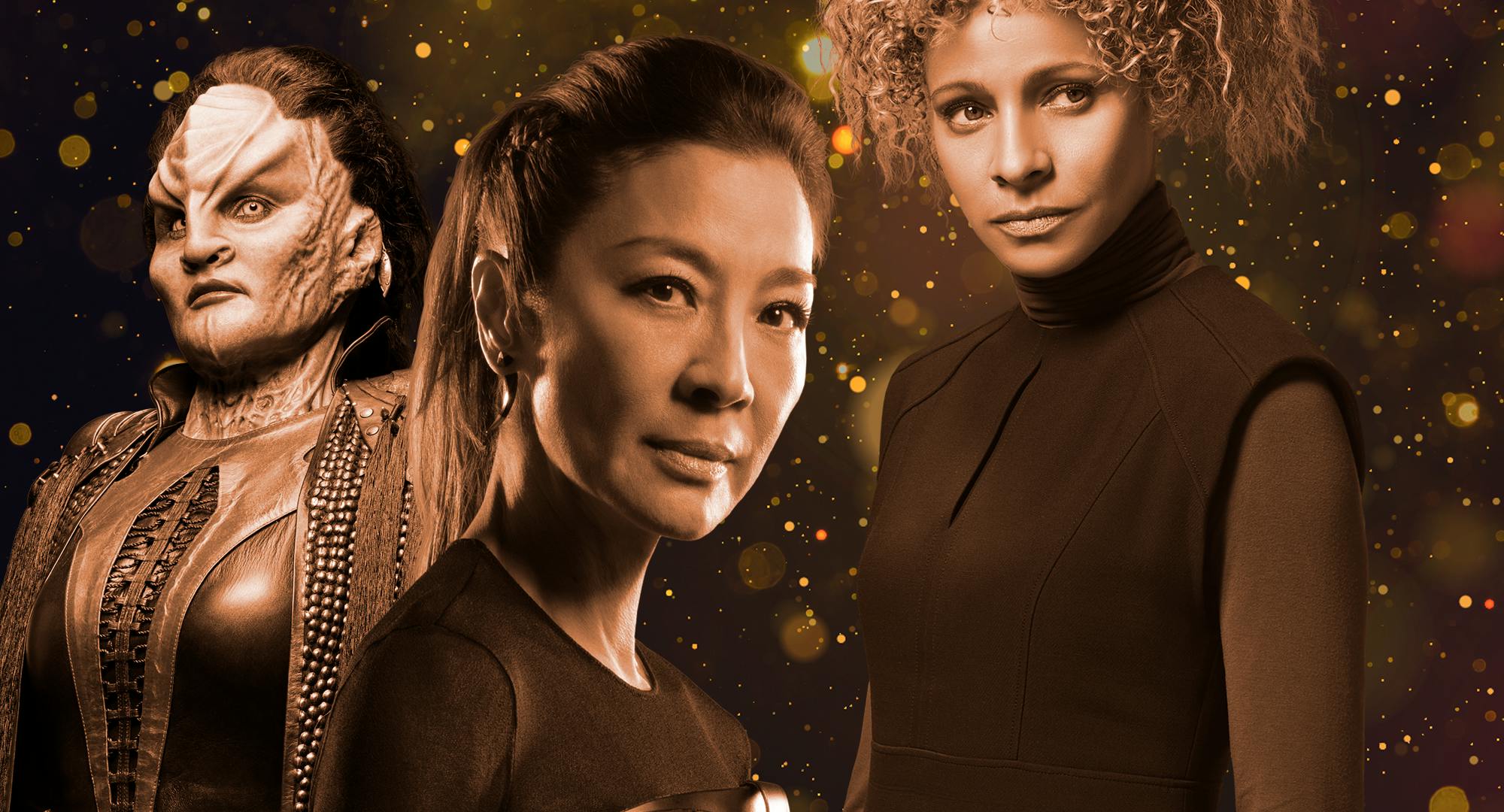
StarTrek.com | ShutterStock/Bokeh Blur Background/Ole moda
The following story contains spoilers for Star Trek: Picard.
She gave me a smirk and that sideways glance I’m used to as the mom of a preteen. All I was guilty of was looking over at her to see her reaction to the TV. I laughed and she scoffed at me for a bit, then we went back to our couch snuggling. I hope I still have at least a year or two of snuggling left, but we’ll see.
I’m grateful that Star Trek has been one of the shows my daughter and I get to watch together. We began watching Discovery at my insistence, and it has been incredible to begin to introducing my child to the older Star Trek shows I love, as well as exploring the new shows together. It is a joy for me to watch her relate to Star Trek. It’s almost like I’ve been watching my daughter and the world of Star Trek mature simultaneously.
---
Growing up as a girl in the 90s who loved Star Trek was sometimes awkward, but we’ve all heard that story. This is the story of a girl who grew up loving Star Trek who is now a mom, a mom watching her daughter discover Star Trek in a very different world; a mom watching a bold new exploration of motherhood in science fiction.
I’ve watched my daughter bloom while viewing Star Trek: Discovery, arguably one of the most diverse collections of characters in the Star Trek universe. It reflects our world — her world. My childhood saw a world filled with hope, and many Star Trek episodes reflected that feeling, with a sense of justice and the ultimate triumph of good. But, much like the future of the Discovery’s crew as they ended their second season with a jump into the unknown, our future now feels so uncertain.
With a universe that she can relate to in feeling, but daughter has also had an easier time finding characters to latch onto as well. When I asked my daughter who her favorite characters were in Discovery, she said Spock, because “he has dyslexia like me,” and Tilly, because she’s “weird and awkward, also like me.” Seeing unique characters who can thrive in the face of uncertainty using logic, critical thinking, and teamwork is essential for our children to see modeled for them as they grow into the mid-21st Century.
Picard also models what it means to lead others — even with a fiercely independent crew — through integrity, love, connection, and forgiveness. These values often seem absent or minimally present in our world. My daughter and I have even bonded over our agreement that Picard is the best Captain. Of course, she’s 11 and doesn’t quite yet fully understand that my swooning over Patrick Stewart clouds my opinion, but I’m sure it’s coming soon.
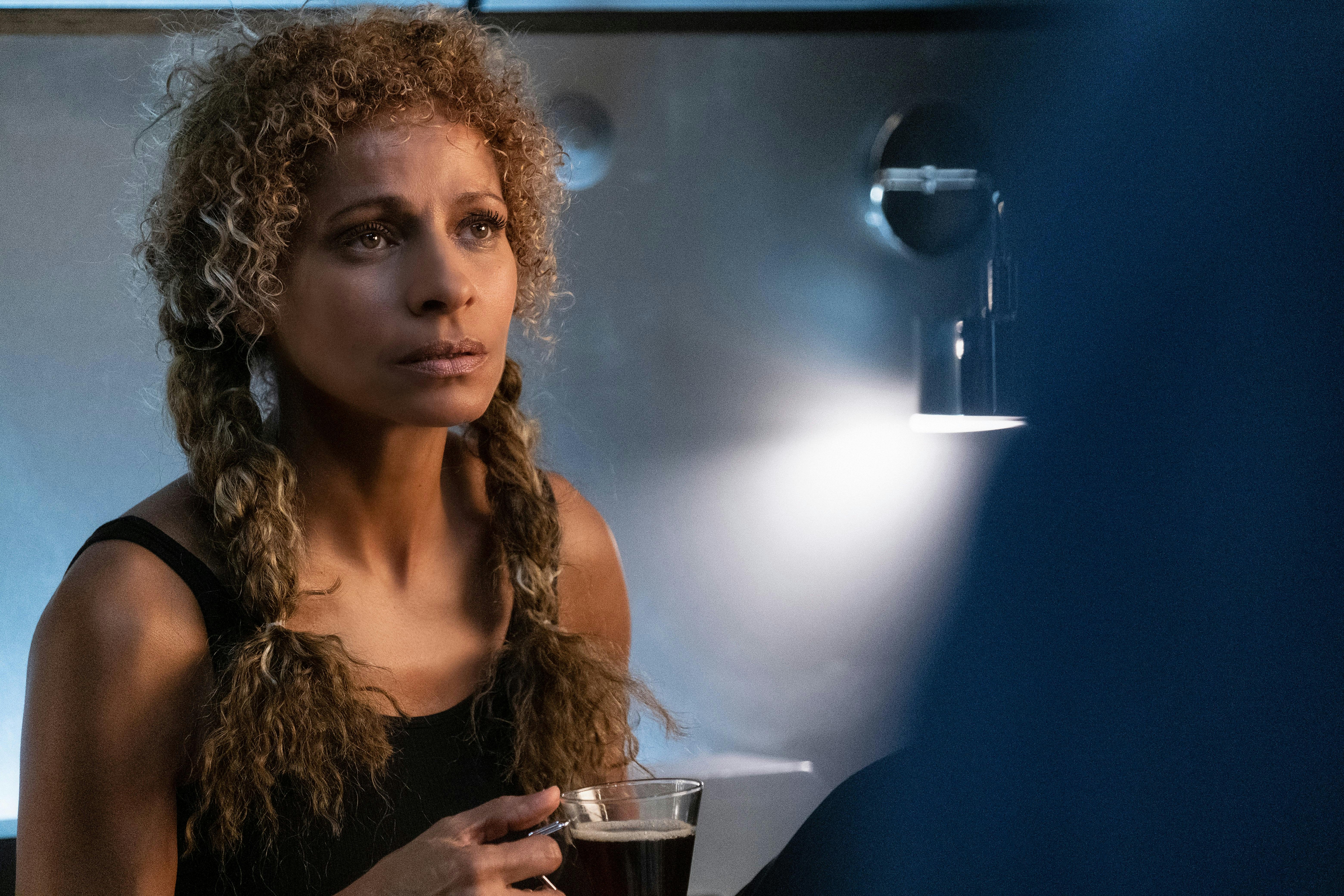
StarTrek.com
Season two of Discovery and Picard’s debut are both full of themes surrounding motherhood, a topic rarely covered in the Star Trek universe. Though Doctor Crusher was always a loving mother and became a more complex character as The Next Generation progressed, her competence and responsibility as a doting mother of a smart and stubborn teen was nothing if not predictable. And, though I imagine teenage boys might be able to relate to this mothering experience, navigating the teen years for a mother and a daughter can look very different. Discovery embraces these nuances through a thorough exploration of Michael’s Burnham’s interaction with her three mother figures —Amanda, Gabrielle, and Georgiou — each unique in their own right. Picard explores motherhood through the trials of Raffi as she navigates motherhood through her addiction, and Seven of Nine as she seeks vengeance for the death of her foster son, Icheb.
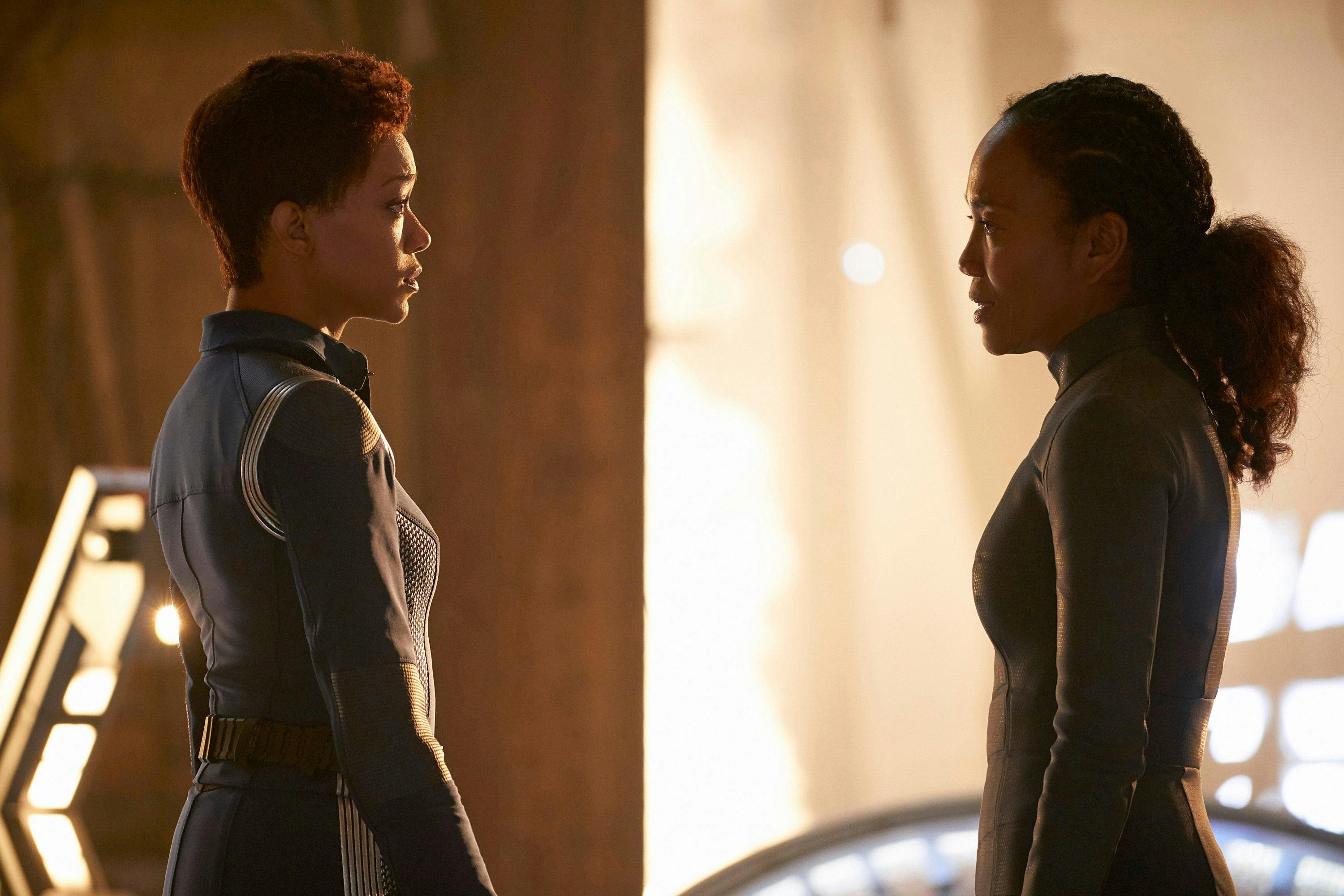
StarTrek.com
For me, it has been validating to watch the love of Michael’s mothers, her biological mother, foster mother, and Mirror Universe adoptive mother, as they all try to guide a smart and stubborn woman along on her journey. One of the most touching scenes in Discovery was the reappearance of Michael’s biological mother. Imagine watching Gabrielle appear, and the pure joy I felt when my daughter enthusiastically screamed, “It’s her mom!” Don’t ruin my geek cred, but I might have shed a few tears, especially as the mother and daughter struggled to connect knowing they may never see one another again. Amanda is the much more traditional mother, a comforting and loving presence with both of her children; while Mirror Georgiou attempts, in her own somewhat evil way, to guide Michael, in acts that only seem like attempts at kindness.
Were I less secure in my parenting, I might be troubled that my daughter insists Mirror Georgiou is one of her favorite characters on Discovery. All mothers try their best to shove, gently steer, or lead their children throughout life. The morality and ethical lessons of older Star Trek series, coupled with the broad gray areas and themes of the newer shows can help us to start deep conversations with our kids as they try to find their own moral compasses in the world.
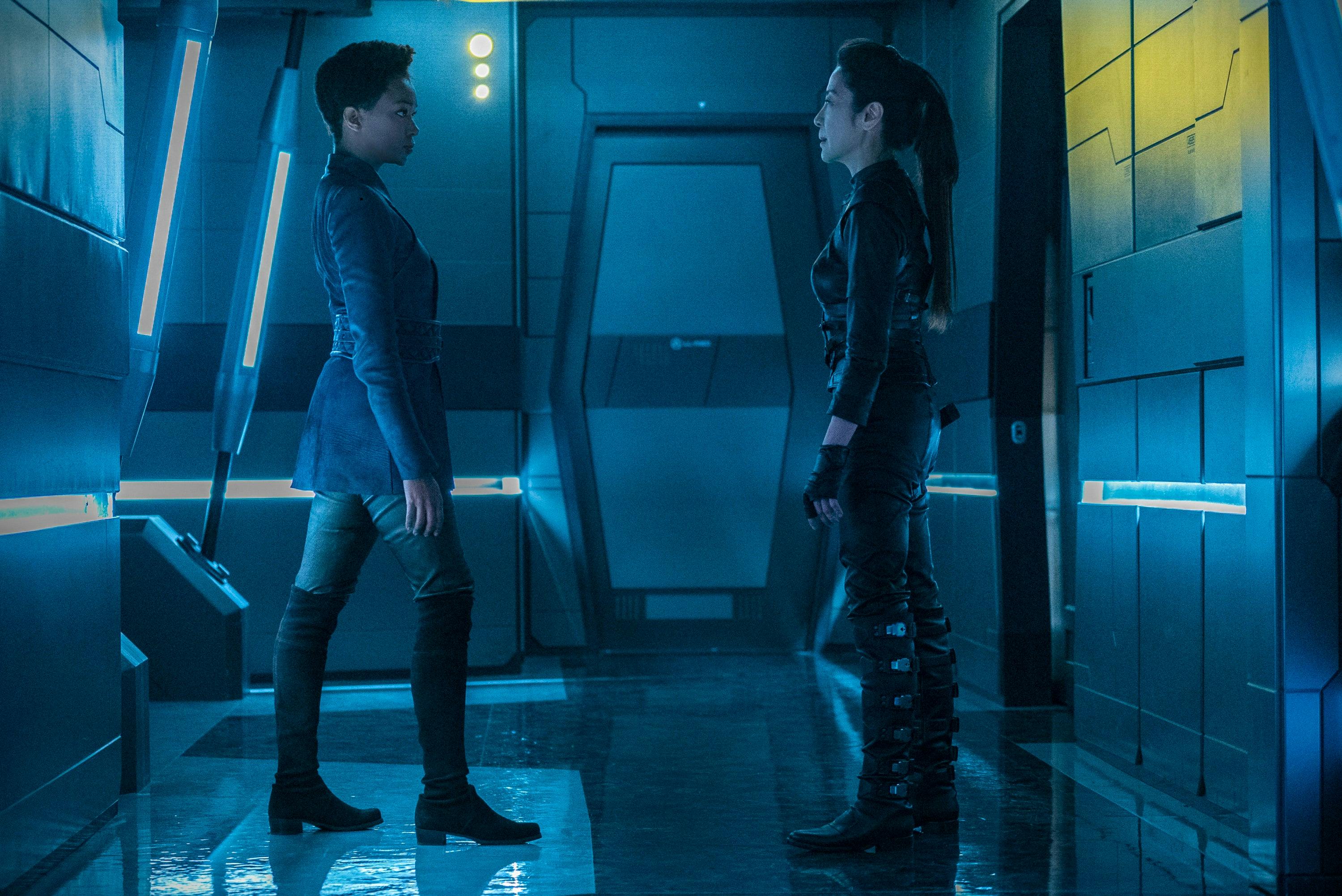
Michael Gibson/CBS ©2018 CBS Interactive, Inc.
Beyond their roles as mothers, Discovery’s moms are also relatable to modern moms. Dr. Gabrielle Burnham is working hard while also being a mom. She has a career as a research scientist while also raising a daughter with her husband. The family seems to be doing quite well at achieving that work-life balance when the Klingons arrive to mess it all up. I’m not sure how balanced you can be with your research lab in your house, just feet away from the dinner table, but that is the new reality for many working moms during the time of COVID-19.
Family can also be more complicated, requiring creative solutions beyond simply balancing work and life, and Discovery hits those notes as well when Georgiou advises L’Rell against juggling a career and a child. After giving up her child, L’Rell goes on to unite and rule the Klingon Empire. In a much later conversation with Tyler, he asks her if she’s speaking of protecting their son as the Chancellor or his mother, to which she replies that he, “of all people, should understand that two truths are possible.” To me, no phrase has better described motherhood than “two truths.” We are mothers, and yet also we strive to be ourselves. It is not an erasure, as motherhood can sometimes feel, but rather an addition to the complex and amazing person you are, were, and always will be. Even L’Rell who gave up her child, brings that identity in as an addition to her own, adding to her depth to her character rather than diminishing it.
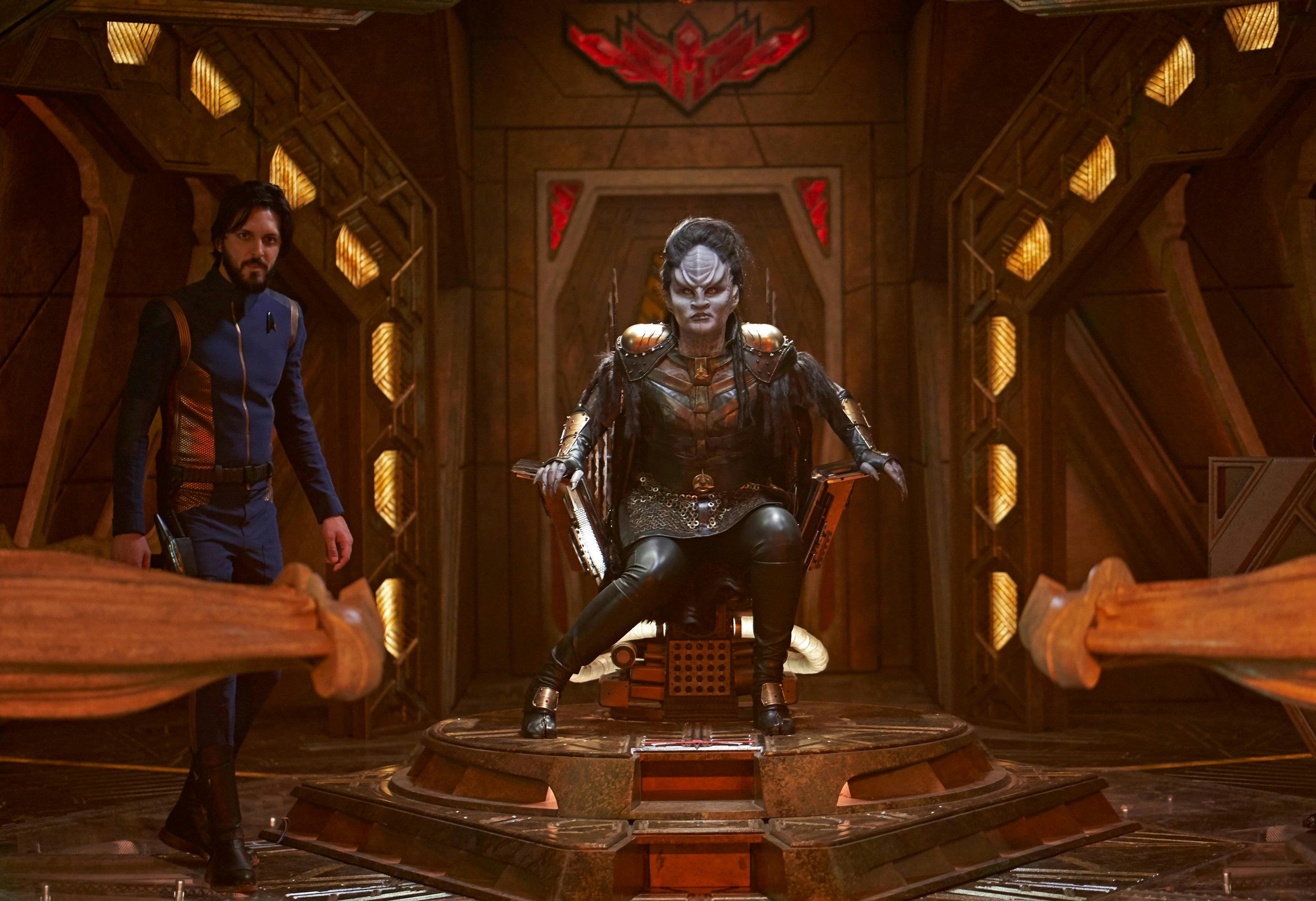
StarTrek.com
Most of the mothers I know are multidimensional characters; complex and amazing women in their own right. Even more so now in the time of COVID-19, motherhood is complicated. Our relationships with our children are both strengthened and pulled apart through this time we spend with each other at home, balancing work, school, and attempting to forge bonds. For my daughter and me, Star Trek has been a way to connect, and I will always thank this franchise for showing characters who are moms like us. We aren’t dead, evil, or perfect, as are so often the portrayals in typical children’s media. Instead, we’re people who try our best to be the best mothers we can be while also working to change the world or galaxy for the better. We are deeply flawed yet always loving, like Raffi, We can care, fight, cry, and rule empires just like Georgiou, L’Rell, Amanda, and Gabrielle.
After giving a speech to her people to reassert her authority after killing her lover, L’Rell asks her people for a fiercer title than Chancellor. That fiercest of titles she claims as her own? Mother.
Stay fierce mothers, and have a happy Mother’s Day.
Star Trek Mothers Know Best
Shelby (she/her) is a freelance writer, a mother, a Star Trek fan, a lifelong science and environmental education professional, and science fiction enthusiast. You can follow her at @shelbygulllaird on Twitter or @shelby.gull.laird on Instagram.
Star Trek: Picard streams on Paramount+ in the United States, in Canada on Bell Media’s CTV Sci-Fi Channel and OTT service Crave, and on Amazon Prime Video in more than 200 countries and territories.
Star Trek: Discovery streams exclusively on Paramount+ in the United States and is distributed concurrently by CBS Studios International on Netflix in 188 countries and in Canada on Bell Media’s CTV Sci-Fi Channel and OTT service Crave.

